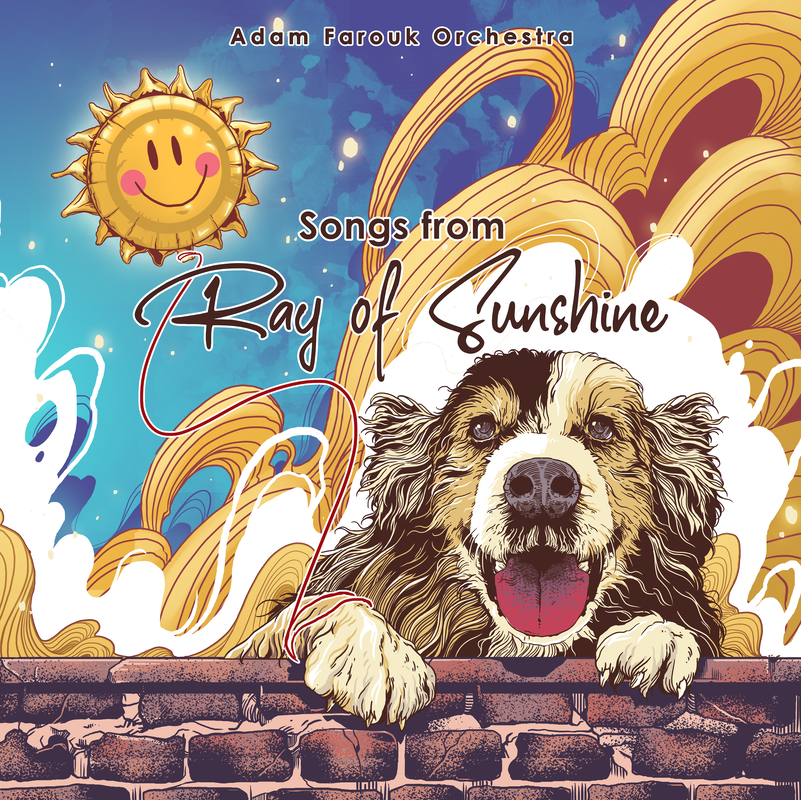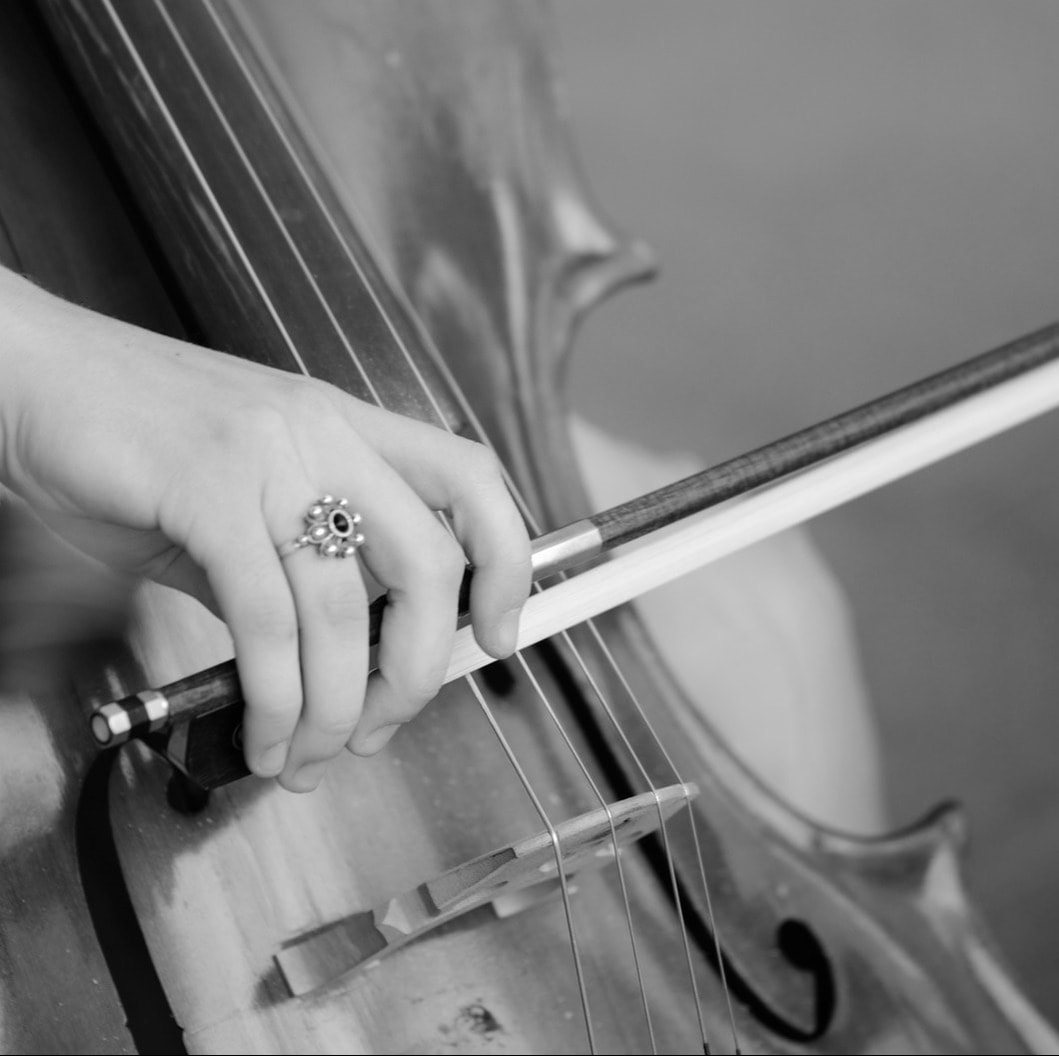Ray of Sunshine is a rock opera composed by Adam Farouk. Set in early twenty-first-century New York City, it tells the story of an eccentric man of means who unexpectedly befriends an old, weather-worn, warmhearted street dog. Together with a talented but shy cellist they meet along the way, the friends must face and conquer their greatest fears and most limiting beliefs to heal their souls and find their way back home.
Products:
|
Songs from Ray of Sunshine (Album)
Released: September 24th 2021 Artist: Adam Farouk Orchestra Label: BlueDorian Records Music & Lyrics by Adam Farouk © 2021 BYIP Creative Media LLC. All Rights Reserved. |
Characters:
Raymond de Villiers - An eccentric member of a famously wealthy Swiss family. When the story opens, 50-something Ray has recently moved from St. Moritz to New York City, where he rents a basement office in an unremarkable brownstone on an unremarkable street and sets up a mysterious laboratory. Sharp, creative, and highly engaged, Ray feels untethered until he encounters Sunshine, a warm-hearted old dog, and befriends Selina, a shy cellist - chance meetings that will indelibly alter his life’s trajectory.
Sunshine - A 15-year-old Australian Shepherd. Growing up in a harsh, loveless environment has not hardened this sweet, loving dog. When she first meets Ray, Sunshine refuses to be shooed away, intuitively recognizing him as “her person”--the human whose soul she must repair and save. Instrumental in Ray’s meeting with Selina, Sunshine wins Ray’s heart to become his friend and companion—and, when he needs her most, his savior.
Selina Lopez - The 20-something professional cellist who works at the music store above Ray’s laboratory. Talented but self-effacing and shy, Selina prefers practicing to socializing. Her working-class family encouraged her to pursue music to gain confidence and blossom, goals she has yet to achieve. Initially distrustful of Ray, she eventually becomes his closest human friend—and his partner in performing a piece that Ray composed as a young man.
Maggie - A local 70-something singer-songwriter who owns the music store, and often plays at its weekly open mics. Maggie’s reflective, philosophical songs often represent local community’s voice.
Brown - A local 40-something event organizer and a perfectionist known for his ebullient personality and flamboyant fashion sense. Brown accepts the high-stakes job of organizing the neighborhood’s Pride Day pageantry, which includes illuminating the Queensboro Bridge in rainbow-colored lights.
Dredd - A 30-something friend and the ad hoc leader of his New York gang. Ray is a spiritual firebrand who believes in free thought, free love, and--if he had his druthers - free hot dogs every night at Gray’s Papaya.
Étienne - A young French-Canadian musician. ´Étienne performs for Ray and Selina at West Side Fest, where they go to discuss details about Ray's mysterious "event."
Baby, I'm bound to find my way out,
Now I've got nowhere left to roam,
Wading my way through muddy waters,
Baby, I'll find my way back home.
- Sunshine ("Baby I'm Bound" from Ray of Sunshine)
Plot Summary:
Under renovation. (Coming soon!)
Format:
Ray of Sunshine is designed to be a live-performance concert event, performed in two acts, with one intermission in between. The show is live-action with some puppetry, and combines songs, sung dialogue, recitativo secco, and instrumental numbers, with minimal spoken dialogue. By using music and song as the show's primary conveyor, the goal is that the audience experience its emotional impact in its most direct fashion. A brief summary of the show's storyline is available as program notes during live performances.
List of Numbers:
Act One:
Act Two
- Introduction
- Seasons Come and Go (RAY)
- Segue #1 - Little Ray of Sunshine
- Now Or Never (SUNSHINE)
- Segue #2 - Now Or Never (bridge)
- Long Road Home (SELINA)
- Beautiful Adventure (SUNSHINE)
- Segue #3 - Beautiful Adventure
- These Games We Play (MAGGIE)
- Segue #4 - Beautiful Adventure (bridge)
- Summer Like Something (SUNSHINE)
- Segue #5 - Parisian Interlude (Long Road Home; Little Ray of Sunshine)
- Passing Moments (ÉTIENNE)
- Star of Night (SUNSHINE, RAY, and COMPANY)
- Segue #6 - Little Ray of "Starlight"
- Little Ray of Sunshine (BROWN)
Act Two
- Entr'acte - Never Look Down
- Vagabond (SUNSHINE and COMPANY)
- Another Wave Passes (DREDD)
- Light Up These Eyes (RAY)
- The Girl from the Well (RAY, SELINA)
- Segue #7 - Summer Like Something (bridge)
- We Can Have It All (SUNSHINE)
- Segue #8 - Never LooK Down
- Never Look Down (DREDD, MAGGIE, and COMPANY)
- I Must Follow (RAY)
- Segue #9 - Various
- Baby, I'm Bound (SUNSHINE)
- Beautiful Adventure - reprise (COMPANY)






